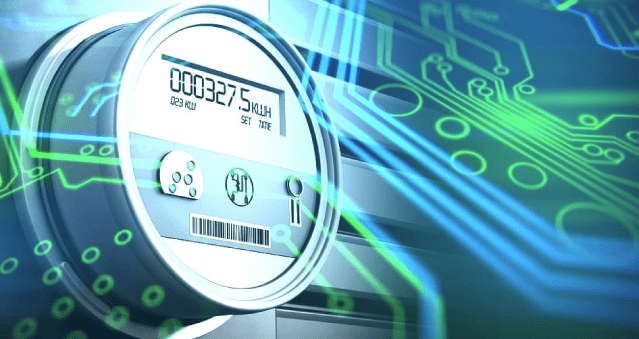Similar to usage-based and consumption-based billing, metered billing is based on actual usage of a product or service, providing a transparent approach to billing. By establishing a direct link between consumption and cost, customers pay according to the amount consumed – no more, no less. And when it comes to metered billing benefits, this popular billing model certainly doesn’t fall short.
Popular metered billing pricing models include per-unit pricing, volume-based pricing, tiered pricing, and overage-based pricing. Regardless of the pricing model, metered billing is typically structured around several components, including:
- Usage metric: This metric determines consumption, such as number of API calls, gigabytes of data stored or transferred, hours equipment was rented, etc.
- Consumption: Hardware and software systems that record the consumption of products and services.
- Billing cycle: Defines how often customers are billed for the consumption of products and services, such as hourly, daily, weekly, monthly, annually.
- Pricing: The per-unit price may decrease as consumption increases or once a certain usage threshold is reached.
- Reporting tools: Customer-facing reports that enable customers to monitor and manage their usage.
Let’s gain a deeper understanding of how metered billing compares to other billing models, the benefits of metered billing, metered billing’s best practices, IoT and metered billing, and how to determine if metered billing is right for your organization.
Metered Billing vs. Flat Rate Pricing
Common among utility service providers, software-as-a-service (SaaS) organizations, telecommunication providers, cloud services, and ride-hailing apps; metered billing is gaining popularity across a variety of industries, including:
- Electronic Car (EV) Charging Services: Public charging stations vary greatly. Some providers charge on a per-minute basis, while others on the kWh of electricity used.
- Internet: Customers pay a fixed rate based on the selected data plan. When usage exceeds the plan, charges are assessed for the additional gigabytes or terabytes used during the billing period.
- Web Services/IT Hardware: Infrastructure-as-a-service (IaaS), software-as-a-service (SaaS), and platform-as-a-service (PaaS) from public cloud providers typically allow customers to 1) pay based on consumed resources or the number of users, 2) increase or decrease usage as their requirements change, 3) create custom packages.
- Rental Services: Businesses that offer rentals of machinery, tools, or spaces often charge based on the duration or magnitude of use.
- Digital Advertising Platforms: These companies typically charge advertisers based on metrics such as impressions or clicks.
What sets this pricing model apart from others and how does it compare to flat-rate billing?
While metered billing is a pricing model based on actual usage of products or services, flat-rate pricing offers a fixed rate for a set amount of resources. Further, metered billing provides flexibility by enabling customers to pay only what they consume, delivers cost efficiency for organizations that can accurately predict usage patterns, and enables the efficient use of resources. Flat-rate pricing, however, simplifies financial forecasting and provides a stable cost structure.
Metered Billing Benefits to Consider
With an array of benefits, metered billing:
- Provides the agility and flexibility to quickly respond to changing business, market, and customer needs.
- Aligns price with the value of the product or service.
- Enables businesses to grow faster with price points that are attractive across buyer personas.
- Expands the potential market by providing startups and small and medium-sized businesses (SMBs) with cost-effective access to high-quality products and services.
- Shortens the purchasing cycle by eliminating up-front investment.
- Improves customer retention by allowing customers to upgrade or downgrade based on their needs and budgets.
- Improves customer loyalty, which lowers costs associated with customer acquisition efforts.
- Provides the ability to increase or decrease pricing based on supply and demand, peak/off seasons, etc.
- Reduces revenue leakage by optimizing product and service usage.
- Allows for fast and easy experimentation and testing of recurring revenue and metered-based pricing combinations.
- Delivers a competitive advantage by enabling you to combine metered-based pricing models with an assortment of features, functions, and options to create differentiated packages and bundles.
- Provides the opportunity to collect and analyze large quantities of customer usage data for better decision-making.
- Promotes efficient usage of resources by encouraging customers to monitor their consumption.
- Increases investor appeal – on average, companies that incorporate a metered-based billing model trade at a 50% higher revenue multiple premium over their counterparts.
From a customer’s perspective, metered billing:
- Can lead to cost savings for customers who effectively manage their usage.
- Provides transparency by aligning costs directly with consumption.
- Empowers customers by allowing them to monitor and adjust their consumption based on their needs and budgets.
- Reduces upfront costs since customers don’t pay for a set amount of usage in advance.
- Eliminates paying for products or services that aren’t used.
Metered Billing: Best Practices
This scalable and highly adaptable pricing model enables better monetization for business offerings, while providing customers with more control over their usage and budgets. To ensure the roll out of your metered billing pricing scheme is a success and to maximize this pricing model’s benefits, we recommend the following best practices.
- Determine a clear unit of consumption such as hours of service, gigabytes of data, API calls, clicks, etc.
- Provide flexible pricing options (tiered pricing, volume-based, overage-based, etc.) that cater to different customer needs, usage, and budgets.
- Conduct regular audits and updates to ensure accuracy.
- Maintain transparency by providing customers with detailed usage and costs in the form of reports or dashboards.
Amplify Metered Billing Benefits with IoT
From autonomous vehicles, traffic management, smart grids, smart cities, and smart homes through agriculture, healthcare, supply chain, and retail – the Internet of Things (IoT) is providing industries with the fuel needed to develop and offer previously unattainable metered billing pricing schemes. For instance, with prices ranging from under $100 to upwards of $3,000, many electric scooter companies are now renting this transportation device as well as offering conventional sales.
The sale of a scooter can provide significant revenue. However, renting a scooter numerous times and charging based on mileage, day, time, peak/off-season or a combination of these parameters provides the ability to continually collect revenue each time the scooter is rented. Over time this results in more revenue than a one-time sales transaction.
Let’s dig a bit deeper into the scooter example. Scooters need a sophisticated sensor to track data such as route, location, ride duration, and mileage. This data is sent – in real-time – to the scooter store’s billing system. The billing system processes the events, creates an accurate invoice, and applies payment. However, capturing and ingesting copious amounts of data from various sources, monetizing IoT device data, and automating revenue recognition can be time consuming, complex, and error prone. To ensure efficient and accurate charges, data must be transformed and normalized. Mediation provides the ability to quickly and easily monetize IoT services or other consumption-based business models, turning usage into revenue.
How Can Your Business Benefit?
With a wide variety of available billing models, how do you know if metered billing is the right choice? Here’s a list of questions to determine if metered billing is the right fit for your organization.
- Can you break usage down into easily explained and understood units?
- Can you determine usage metrics that easily align to the value of your offerings?
- Do your costs fluctuate depending on the number of customers using your products and services?
- Do usage patterns vary based on supply/demand, seasons, etc.?
- Can you track and recognize fluctuating revenue?
- Can you offer a variety of pricing tiers?
- Are you able to effectively charge based on the value of your products and services?
- Do your customers use varying amounts of your products and services, but pay a flat rate?
- Are you receiving complaints from customers that believe they are overpaying for your products and services?
- Have you seen a rise in customer churn?
- Will your revenue increase by offering metered billing?
If you answered yes to most of these questions, metered billing may be right for you.
Grow Revenue with Metered Billing
To grow revenue and maximize the benefits of metered billing, the right billing platform is essential. One that easily adapts to a limitless number of business models and allows you to aggregate and analyze usage data from any source and in any format. This is one of the many areas BillingPlatform excels.
Key to the success of onboarding metered billing is your ability to collect, translate, and monetize data. BillingPlatform enables you to aggregate and analyze usage data from any source and transform it into revenue potential in real time.
With us you get a built-in mediation engine that allows you to expand and refine your offerings, while meeting evolving market demands. Our automated, rule-based mediation ensures seamless data normalization, filters out extraneous usage records, and directs data for rating and billing – all in a unified solution.
Are you ready to grow revenue with metered billing? Contact our team of experts to learn more.



